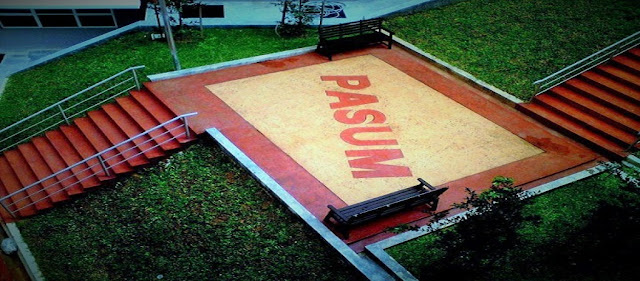Second Guessing my Humanity
I am now half way through medical school. Clinical years thus far has been a very tumultuous start. There have been highs and there have been lows, there also have been so many days I have second guessed my decision to enter medicine and the thought of quitting has come to mind more often than I would like to admit. However, today's post will not be a post to complain, today's post is a reflection and a realisation...and not a good one.
As I get further and further into my clinical years, I have come to realise that it's not that easy to truly empathasize and think as if you are in the patients shoes. It is truly much easiser said than done and even if you think you are empathetic, you may not actually be that empathetic. As an illustration, in medical student one typically has to learn clerkship; to talk to patients to come towards a diagnosis. Well you see, as I talk to patients, my mind is rapidly thinking about what ailment this pateint could be suffering from or what issues I need to be aware of which I either have to manage later or will affect my management. It's basically trying to fish out puzzle pieces so that you can solve the enigma that is the pateint in front of you. However, how often do we stop to truly realise the weight of what it feels like to be a sick person. The 7 month old child comes in with bloody diarrhea for 3 days. In our minds as clinicians, we would be thinking is this an infective cause or is it autoimmue, is this patient clinically dehydrated and requiring fluid therapy, how could this child have gotten an infection that caused him to have bloody diarrhea, but have we stopped to realise how distressing it was for his mother the first time she saw those streaks of blood in her child's diaper? Did we stop to ask the mother whether she think's she caused the bloody diarrhea because she recently changed the child's diet to include some new ingredient she got from a mum's magazine? How much do we really understand about the patient's current status. Sure at the end of the day we may find out this child is having infective dysentery with moderate dehydration and we've set up an amazing plan to start antibiotics and fluid therapy, but did we stop by to check on the mum as she struggles to change the linen of the bed as her child keeps soiling through his diapers and dirtying the cot. Do we wonder about how his siblings are doing at home wondering about what's happening to their "adik" in the hospital. I've realised that I've been so focused trying to see as many cases in the textbooks that I can or appreciating all the signs so that I don't fumble during my exam that I have forgotten how to be human!
It doesn't take much to ask how the illness has affected the family and to listen with genuine concern. We're so use to asking questions so that we can ellicit facts to rule in or rule out or get something from the pateint so that we can do something to manage them but in fact just listening to them is what they need. They just needed an ear to air their frustrations to. They just want to feel like they're being heard too and not just told things. In paediatrics I have appreciated how truly important explaining and alleviating the concerns of the parents is. Leaving them in the dark about their child's illness is the worse thing you could do but leaving them with half the information is no better either. A sit down to explain and ensure they understand everything and have their doubts cleared truly does miles for the child and parents. I hope that as I see more and more patients I realise that these are real people with real problems and not just cases in books for me to learn. They have lives, family, concerns, fears just as we do. Each person is a person and should not to just "that AGE case" or "the Cerebral Palsy patient". It's Aliff with the bloody diarrhea and the mother worrying wheter it was the new milk she changed too causing the bloody stools or Mikayla the young girl who's having trouble crawling and getting up and achieving her developmental milestones.
With that, hopefully I come back penning a better post next time. One where I realise something good instead perhaps.




https://www.metaeducationindia.com/mbbs-in-india
ReplyDelete